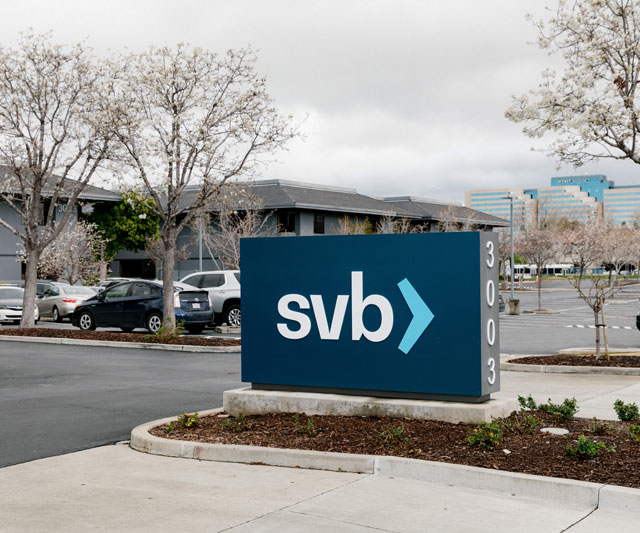New business openings are surging in Florida and Georgia, and there are plenty of opportunities for financial advisors who can help their owners navigate the challenges of creating and running a startup.
This includes seasoned entrepreneurs flocking to these states, as well as first-time business owners. The latter likely don’t have as much investable assets as they fund their new ventures, but proper planning is essential for themselves, their employees and their businesses.
Advisors in these states have taken notice and are working to connect with these clients, knowing it could lead to lucrative long-term relationships.
“Atlanta, of course, is booming,” says Terry Hartigan, CFP, owner of Savant Wealth Management in that bustling city. “The whole metro Atlanta is doing fantastic. Manufacturing and warehousing — the logistics community is big because we’ve got the world’s busiest airport right in Atlanta. And you’ve got a very big, busy port down at Savannah … As a result, the construction business is obviously massive here.”
Hartigan also praised Georgia’s efforts to bring in new businesses. “It’s a very business-friendly environment down here, and the Georgia Department of Economic Development, which is basically our state of Georgia marketing arm, has done a lot to attract a lot of new businesses … some of the big major businesses,” he said.
In Florida, “things are going gangbusters,” says DJ Hunt, CFP, a fee-only financial advisor with Moisand Fitzgerald Tamayo in Melbourne.
Beyond the bigger cities, Hunt sees the booming Florida startup economy in his own small town, Satellite Beach. “Lots of franchises coming here, lots of mom-and-pop stores as well. All the strip malls are full,” he says.
Recent Statistics Back Advisors’ Observations
According to a new report by business valuation firm Eton Venture Services, Florida ranks third in the nation for new businesses per 100,000 population, while Georgia is sixth. The analysis is based on Census data from the first half of 2025.
From Jan. 1 to May 30, 2025, 284,418 new businesses were created in Florida — nearly 12% of the 2.44 million new businesses created across the U.S. In Florida, that works out to 1,217 new businesses per every 100,000 people — 70% higher than the national average of 717 per 100,000.
“Businesses are formed when entrepreneurs are optimistic, and there’s a lot of optimism in Florida,” Hunt says. “It’s a solid place to raise a family. It’s a solid place to put down roots and build businesses. And there just seems to be a never-ending flow of new customers coming in here. So, the wisdom of the crowd around here would indicate that Florida’s got a bright future.”.
During that same period, Georgia welcomed 111,815 new businesses, or approximately 1,000 per 100,000 population. That’s 40% above the national average.
Those figures aren’t flukes. Both states had similar numbers for all of 2024.
Also making Eton Venture Services top-10 list for business formations per 100,000 people during the first 5 months of the year, shown with the total number of new businesses, startups per 100,000 residents, and the percentage difference from the national average, are: 1. Wyoming (30,859; 5,252; +633%), 2. Delaware (25,446; 2,419; +238%), 4. Montana (12,934; 1,137; +59%), 5. Colorado (62,816; 1,054; +47%), 7. Washington (78,392; 985; +37%), 8. Nevada (28,234; 864; +21%), 9. Utah (29,931; 854; +19%), 10. New Mexico (16,094, 755, +5%).
Georgia Leads in Franchise Growth
The Peach State is projected to be the top state in the nation for franchise growth in 2025, adding a projected 2,152 new franchises, according to the International Franchise Association.
The association estimates that franchise businesses will generate 361,287 jobs and contribute $37.4 billion to the Georgia’s economy, which the IFA attributes to population growth trends, business-friendly policies, and industry growth.
Georgia also saw big growth in business facilities in 2024, according to the state’s Department of Economic Development (GDEcD). During fiscal year 2024 (July 1, 2023, to June 30, 2024), the department reports that its global commerce team supported 429 facility expansions and new business locations. Those new facilities and businesses generated over $20.3 billion in investment and created 26,900 private-sector jobs, says GDEcD. A major driver of Georgia’s economic growth has been exports, says GDEcD, which notes that 87% of the state’s exporters are small businesses.
Major Corporate Additions
Larger businesses in Georgia are also stepping up their operations in the state. Earlier this year, Georgia’s governor announced that battery maker Duracell will be investing $56 million to create its new global headquarters for research and development in Atlanta. PBS Aerospace will invest up to $20 million to establish its North American headquarters, manufacturing and research and development operations in Roswell.
And while most financial advisors won’t get business directly from the big corporations coming in, those corporations still create opportunities, Hartigan says. “Those big, major businesses that come in town attract the formation of other businesses as well to serve the growing workforces,” he says.
“I’ve talked to a lot of people down in this area who service (new, big corporate facilities),” he says. For example, “they get landscape contracts to service the whole plant area.”
Tax Advantages a Big Lure
Another Georgia financial advisor, Kat Grier, says population growth and business-friendly taxes are key reasons for the growth of new businesses in the state.
“Georgia has in the past few years continued to decrease both the corporate tax rate and personal tax rate that impacts pass-through entities,” says Grier, a wealth manager with Merit Financial Advisors in Alpharetta. “Recent legislation outlines plans to reduce state tax rates (corporate and personal) to under 5%.”
Financial planner Ben Loughery, CFP, CRPC, founder and managing principal of Lock Wealth Management, Atlanta, agrees that taxes are a big driver of new business growth in both states. “It really comes down to the tax advantages,” Loughery says. “In Florida, there’s no state income tax. That may be really attractive to someone in New York or Chicago or other bigger city where it’s just a lot more expensive to do business.” He adds a caveat, though.
“I have Florida clients, and they all appreciate that there’s no state income tax,” Loughery says. “But of course, Florida can get you in other ways,” he adds, noting that Florida has relatively high property taxes. “There’s pros and cons there.”
Still, in its 2025 State Tax Competitiveness Index, the Tax Foundation ranked Florida fourth in the nation in the competitiveness of its taxes. Georgia ranks 24th. The index weighs a variety of taxes imposed in a state, including income, corporate, sales, property and unemployment insurance.
Loughery also notes that Georgia has tax incentives for businesses, especially the film industry. Although many people don’t know it, “film is very big here … sort of the second Hollywood,” he says. “A lot of TV shows and movies are filmed here because it is cheaper to do business, and (the state) offers a lot of tax credits and incentives.”
Serving New Businesses
So, how can advisors in Florida and Georgia — or any fast-growing state or community — take advantage of the surge of new business formations?
For Hartigan, the answer is to be a full-service firm. “Every new business is a potential long-term client,” he says. “The winners for the financial advisors are the people who can bridge together everything from retirement planning to estate planning and tax planning.
“The challenge serving entrepreneurs is they’re so focused on the business, they don’t have a lot of time to go and meet with a lot of different advisors, so that advisor can really coordinate everything,” Hartigan says. “We work with a lot of entrepreneurs who want advisors who can be effectively a one-stop shop, what I call a financial strategist.”
A Different Mindset
Hunt, who works as a fee-only financial planner, says business owners who are just starting out may not have a lot of cash to invest. “It’s a different mindset when you’re working with business owners, because a lot of the business owners don’t fit into the traditional AUM-based” fee system, he says. “This is a good opportunity for advisors who work on a fee basis to be able to charge fees that don’t correlate directly with the AUM involved.”
‘Baby Steps’
Loughery says he walks new entrepreneurs through the process of business formation using “baby steps.” That includes ensuring they don’t make the mistake of mixing personal and business finances. “That’s step one,” he says. Setting up a separate business account is important when it’s time to apply for a business loan, as it demonstrates clear organization and shows that all business expenses are properly structured and separate from personal finances, Loughery explains.
Other important steps are selecting the best business model, such as an LLC versus an S corporation, and setting the most tax-efficient retirement account, such as a solo 401(k), SEP IRA or simple IRA, he says.
It’s also important to make sure the business has enough liquidity, because a financial cushion can help manage periods of unpredictable income “when they might be in some of the valleys versus the peaks,” Loughery says.
Hartigan adds that an advisor can help a new business set up a retirement plan to attract and retain employees.
“And as a business gets more valuable, we’ll often help them with the estate planning,” Hartigan says. “Should they start putting some of their business interest into trust and pass it down to their next generation? We’ve often helped clients in those types of situations. So that’s really a full life cycle with a lot of these entrepreneurs and new businesses.”
“It’s not just enough to provide great service,” he adds. “You’ve got to bring a lot of value specialization and a lot of services.
“But doing a great job for one entrepreneur can lead to a lot of new business for a client, and for an advisor,” he says.
Ed Prince is a writer for Rethinking65. In a four-decade career in journalism, he has served as an editor with many of New Jersey’s leading newspapers, including the Star-Ledger, Asbury Park Press and Home News Tribune. Read more of his articles here.







